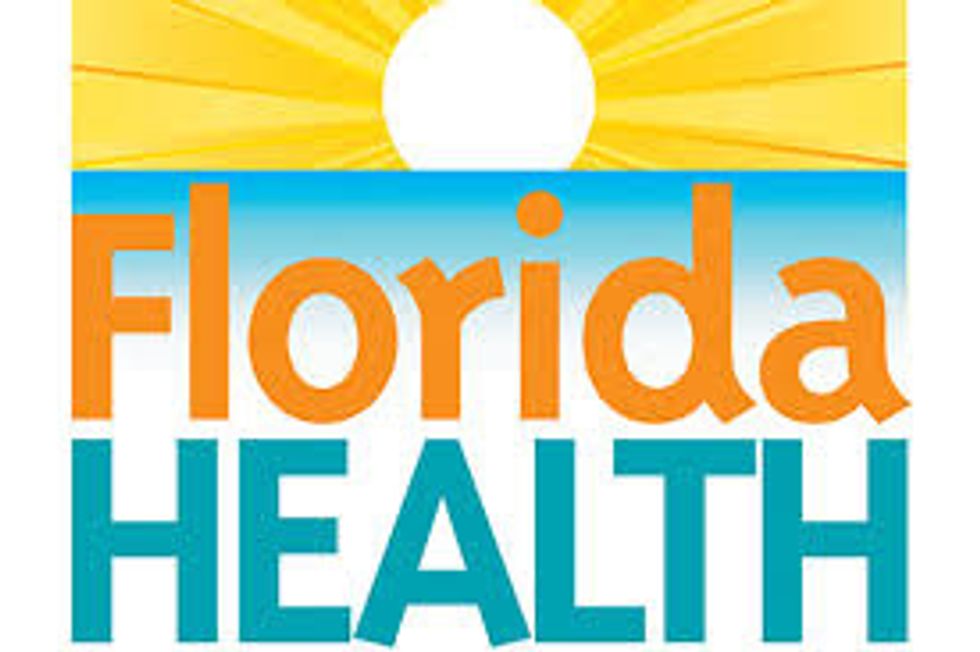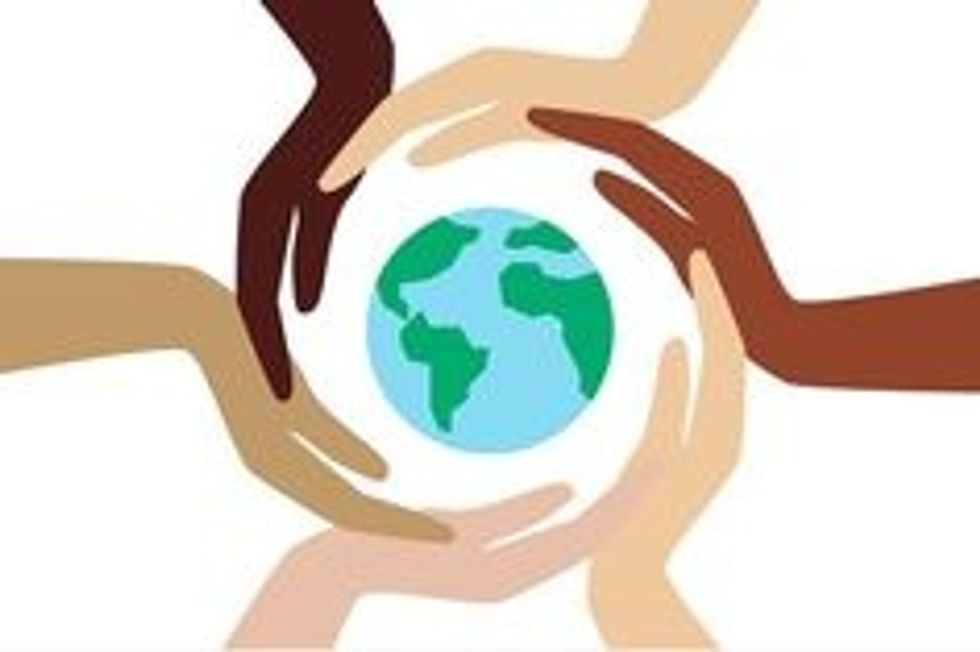Dr. Jason Salemi, professor of epidemiology at USF's College of Public Health and College of Medicine donated his time to speak to Florida State University students to discuss his COVID-29 data dashboard and his experiences serving the public as a scientist during the pandemic.
1. Objects in Mirror Are Closer Than They Appear

On the surface level, COVID-19 data from different departments, whether it is from the CDC, FDOH, or other independent sources can be misleading if you aren't sure what the numbers mean. For example, we've all experienced during the six months we've been hibernating in quarantine seeing news headlines that can be conflicting depending on what channel you tune in on. Without getting political, sometimes mainstream media can push for stories that are similar to their own confirmation biases, but this further stresses the importance and duty journalism and the media has to host scientists like Dr. Salemi and other public health experts to educate the public.
Here are a few tips to be mindful of when consuming information from different sources regarding the current pandemic. Don't take my word for it, but take the word and recommendations from public health experts whose professions are dedicated to understanding bio-statistics, epidemiology, and how important it is for government in any matter and level to make evidence-based decisions.
2. Is Florida Really Skewing Data? Not likely intentional, but need for clearly communication from Florida Department of Health.

This is the same question Dr. Salemi went ahead to answer on his CNN interview. As a concerned public health student myself, it was interesting to learn the expert's opinion on the performance of our public health agencies. Although it may be easier to quickly pair misrepresenting data with intentional downplay, I agree with Dr. Salemi that the testing data from Florida needs more clarification to stop confusing the public and media. For example, before Dr. Salemi took it upon himself to compile a more customized, specific dashboard on available COVID-19 reporting, the FDOH dashboard was basic in its display of information. In other words, after downloading the publicly available case line data (raw data), Dr. Salemi aggregated the data into more meaningful ways--like what number of positive cases age 18-24 (college age) are in a Florida county. Seeing information besides age and race specific (as we know the virus disproportionately affects races like blacks and other minority groups) allows for our community leaders to make more accurate decisions based on accurate data.
3. The Problem with Florida COVID-19 Test Reporting:

What Florida does is take the total number of cases tested and put that in the denominator with positive cases in the numerator to calculate the case positivity rate. The problem with this is the following, explained in a simple example Dr. Salemi explained on his CNN interview:
Imagine 10 people are tested over a month and test negative each with, but in the fourth and final week 5 of them test positive. We obviously know then that 5 out of 10 people tested positive, which means there was a 50% positivity rate and bad news. However, Florida was reported numbers as there were 40 tests taken (each person went once per week for a month) and only 5 of those were positive, so the case positivity rate is now a mere 12.5%.....This is a misleading representation of data because it leads politicians and community leaders to say, "We have lowered cases, let's move on to less restrictions", when in reality, the number of infected people is way higher. These issues may not be intentional or politically driven, but even if the data doesn't fit the politician's narrative, or wishes for full operation instead of 50% capacity in businesses, decision making has to be made by real and accurate data. This is for the sole fact that accurate data makes life saving decisions, regardless if you're a Democrat, Republican, or whatever you believe in.
4. Two Truths & a Lie: 1) Testing is important, 2) We need more testing, & 3) Testing causes the virus...(hint: FALSE).

Trying to remain apolitical here, a certain leader continues to say "more testing equals more cases" as if to dismiss the fact that testing more does not cause higher cases, what matters is what percentage of these cases are positive which is the problem. Regardless of your political values and if you swing right or left, let's level the playing field and focus on what matters: the data.
Evidence doesn't care what your political views are, and neither does the coronavirus. When it comes to testing, the simple truth is more testing means more surveillance. If a high percentage of tests are positive, this shows the virus is spreading and communities are feeling this heat. But to equate high rates of testing to being the causation for positive cases is logically and factually incorrect. Testing simply uncovers what is already going on, which in approximately 40% is asymptomatic and undetected in infected individuals.
5. But Wait, There's More: Two Test Types & Why They Matter

There are two types of COVID-19 tests. One is a molecular test called "real-time PCR (polymerase chain reaction) which locates genetic material for the virus and amplifies this to detect it in the body. This "zooming in" or "amplification" of the genetic material for the virus makes the test extremely accurate, but it takes longer to process. The other test is the antigen test which locates proteins for the virus in usually 15 minutes, but 20 out of 100 people will have a false negative test. Florida doesn't show a distinction in the data between the two test types, which means you're including a significant number of false negatives which skew the data drastically, and dangerously. This makes it harder for scientists and community leaders to make decisions when there are inaccurate false negatives that should really be counted as what they are--positive cases. This also creates the problem for the virus to be undetected in people and lead to more infectious spread.
6. Lead by Example & Decide Through Evidence

When you make a critical decision, like what to major in, you do your research and gets facts about your field that will be relevant in your decision-making process. You would want to have access to the most accurate data, like salaries in your state, available jobs, and level of education required. Here you show an example in your own life of using accurate information to make meaningful decisions.
The same simple principle applies to when government at the local, state, and federal level make decisions. If data is misrepresenting, or misguided and inaccurate, the decisions that come out in effect will reflect this failure to meet goals of effective policy. I implore you to take information you read at face value with a grain of salt and really understand statistics before you retweet that misinformed and inaccurate claim from Fake Information University.
7. Source Credibility

We learn in college to always properly cite and gather data from highly credible sources. Well, some things never change. For any COVID-19 data, make sure you're looking at the right source. We all love our daily Twitter news, and most times it's okay to get info from Twitter. However, with virtually all social media or anything you read online, take it with a grain of salt. Be a vigilant consumer of information and question basically everything, because you never know if the information you are reading has a hidden agenda. Always ask yourself how the information was collected, from who, and why. Doing so will not only make you a wiser reader, but also an agent of change during an era where misinformation is a huge threat.
8. DEAR SEMINOLES:

Please wear a mask, social distance, and continue to follow CDC guidelines. No offense, but I don't care if you think you're invincible. Even if you were Super Man. Why? Because when you go places outside your home, you're already becoming an agent to which the virus can infect, and spread without symptoms. Do a favor for everyone who cares, as they should, and respect the health of others. The kids of zip code 32304 and their destitute families would be very much appreciated that you didn't go becoming a vector for COVID-19 to spread, even if you don't care you get sick. Do a favor and wear a mask, so you're immunocompromised roommate can have some peace of mind. Do yourself a favor, and follow CDC guidelines so we don't have to be embarrassed when FSU is called out on national television for our disgusting lack of disrespect for public health when some of you decided to act like the virus is a fairy tale. If you think herd immunity is the answer to all this, think again because more Americans (millions) would have to be infected and many more die for "herd immunity" to work. Lastly, do yourself a favor and follow the words of our respected public health leaders. Thank you.


















